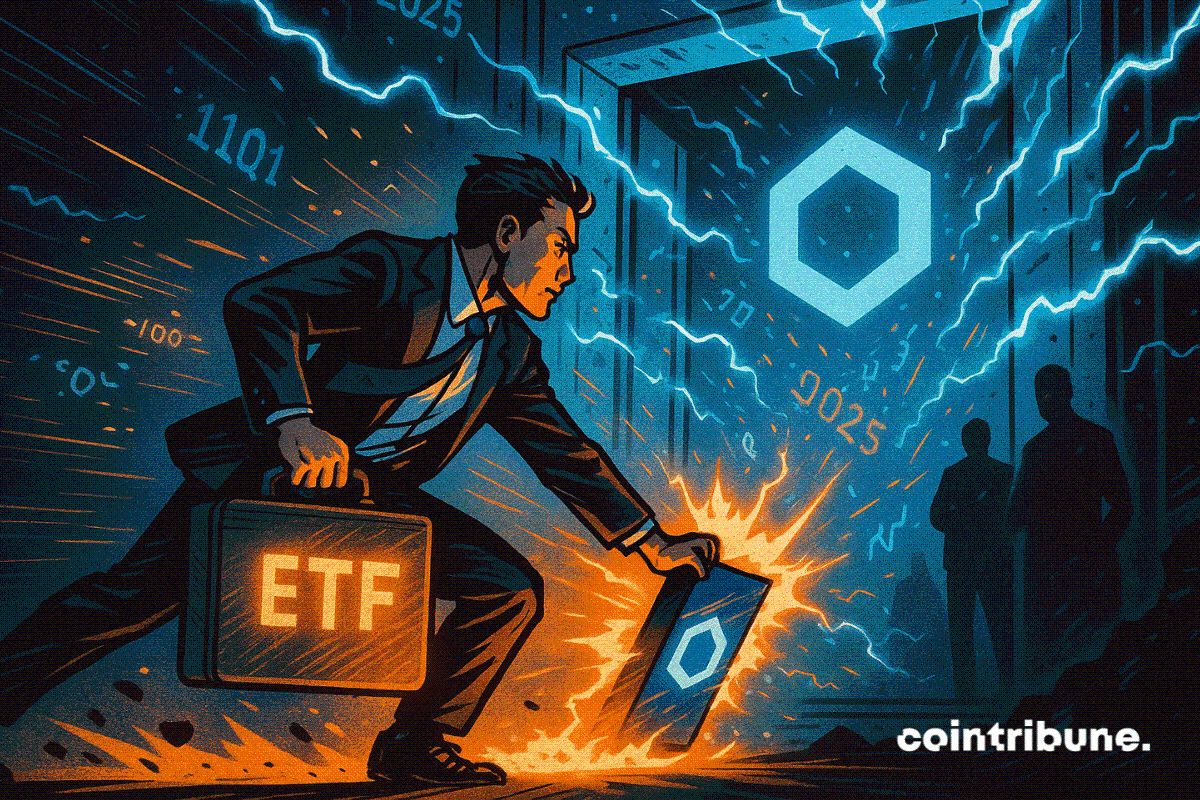Investors Shift from Crypto to Local Equities as Global Instability Persists, Resulting in $24 Billion Loss
- South Korea's crypto market lost $24B in H1 2025 as domestic holdings plummeted from 121.8T to 89.2T KRW, with trading volumes collapsing 80%. - Retail investors shifted $657M to domestic stocks, favoring U.S. tech holdings amid won strength and global uncertainty. - Government accelerated crypto-friendly policies, reclassifying firms as "ventures" for tax breaks and launching first spot ETF frameworks. - Regulatory scrutiny intensified, flagging 36,684 suspicious transactions linked to 90% "hwanchigi" s

According to the Financial Stability Report from the Bank of Korea, the Korean cryptocurrency sector saw losses totaling $24 billion from January to June 2025, as local crypto holdings dropped sharply from KRW 121.8 trillion to KRW 89.2 trillion. Trading activity on domestic exchanges plummeted by more than 80%, with daily volumes falling from KRW 17.1 trillion in December 2024 to just KRW 3.2 trillion by June 2025. Even though Bitcoin’s value increased during this time, individual investors withdrew significant amounts, causing exchange deposits to fall from KRW 10.7 trillion to KRW 6.2 trillion. This withdrawal coincided with a shift in investment toward domestic stocks, particularly in U.S. technology shares, which outperformed international markets as the won strengthened.
The Bank of Korea partially linked this downturn to investors moving funds into local assets amid global instability, especially due to unpredictable U.S. tariff policies. In August alone, retail investors sold a net $657 million in Tesla shares, while crypto-related companies such as Bitmine Immersion Technologies saw $253 million in new investments. Despite the slump in Korea, the worldwide crypto market cap grew to $4.2 trillion by September 2025, making up 3.2% of the global stock market. This expansion was supported by increased institutional involvement and legislative developments, including the passage of the U.S. GENIUS Act.
In response to the downturn, South Korea’s government ramped up support for digital assets. President Lee Jae-myung named digital asset innovation a “core national priority,” and the Democratic Party formed a special crypto policy group to draft new laws by the end of the year. Regulatory updates included reclassifying trading companies as “venture firms,” granting them tax breaks and access to government-backed funding. Financial authorities also removed barriers for institutional crypto investments and began laying the groundwork for the country’s first spot crypto ETFs. Leading banks such as Woori, Kookmin, and Shinhan created specialized crypto teams to prepare for entering the market.
Despite the capital flight, more than 10,000 people in South Korea held crypto assets worth over 1 billion won ($750,000), and there were 10.86 million active trading accounts, representing 20% of the population. Surveys showed that 51% of South Koreans aged 20 to 59 had experience with cryptocurrencies, and 27% currently owned digital assets. Most early adopters started with
The downturn also brought increased regulatory oversight. In 2025, South Korea identified 36,684 suspicious crypto transactions—more than the previous two years combined—raising alarms about illegal cross-border transfers and misuse of stablecoins. Officials reported that 90% of crypto-related crimes involved “hwanchigi” operations, where illicit money was funneled into crypto through offshore exchanges.
The sharp decline in Korea’s crypto market highlights the intricate relationship between investor actions, regulatory changes, and global economic trends. While the government’s pro-crypto stance aims to encourage sustainable growth, immediate concerns remain about protecting retail investors while fostering innovation. The emphasis on won-backed stablecoins and greater institutional involvement could reshape the market, but ongoing outflows reveal the vulnerability of a sector long fueled by speculative individual trading.
Disclaimer: The content of this article solely reflects the author's opinion and does not represent the platform in any capacity. This article is not intended to serve as a reference for making investment decisions.
You may also like
Bitcoin Latest Updates: Institutions Lock in Returns as Bitcoin Connects DeFi with Conventional Finance
- Colossus Digital partners with Validation Cloud to enable institutional staking with custody control, addressing security and compliance concerns. - WBTC expands to Hedera blockchain, introducing Bitcoin liquidity to DeFi ecosystems while maintaining BTC exposure for users. - Hyperion DeFi launches HYPE Liquid Staking Token and HOUSE platform, diversifying crypto yield strategies through trading fee discounts and market-making. - Institutional-grade security and Bitcoin's DeFi integration highlight marke

Bitcoin News Update: Go Big or Go Home—Trader Faces Liquidation on 40x Short as Bitcoin Rockets Beyond $106,000
- Pseudonymous crypto trader James Wynn's 40x leveraged short BTC bets face liquidation as Bitcoin surges past $106,000, wiping out his Hyperliquid account to $5,422. - Wynn's all-in bearish strategy amid extreme market fear (index at 15) highlights risks of leveraged trading, with unrealized losses reaching $11,147 since November 1. - Crypto market remains volatile as fear persists (weekly average index at 24), with analysts warning panic selling risks undervaluing assets despite potential recovery signal
Market Changes Challenge the Strength of Partnerships and Pioneers in AI Innovation
- Stardock Entertainment launched Galactic Civilizations IV's Terran Alliance DLC, offering five $14.99 content packs to deepen 4X gaming engagement. - Green Science Alliance developed low-cost, non-flammable aluminum-ion batteries, advancing post-lithium energy storage despite lower capacity than lithium-ion. - Alliance Laundry Systems reported 14% Q3 revenue growth ($437.6M) post-IPO, leveraging capital for innovation and debt reduction. - Allianz exceeded 2025 earnings forecasts with €13.1B 9M operating

XStocks Hits $10B in 4 Months, Tokenized Stocks on the Rise
